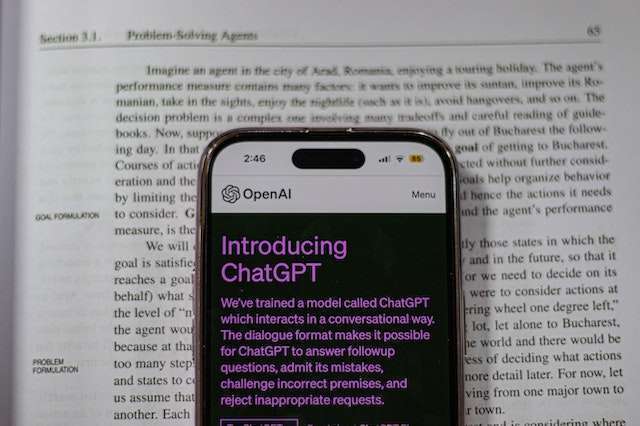ChatGPT in the Legal Industry: What Every Lawyer Should Know
ChatGPT has taken the legal industry by storm, inundating the web with reviews, explanations, and use cases. This generative AI technology performs text-based functions that were once only envisioned for the future or in sci-fi movies.
Since its release, ChatGPT has achieved multiple milestones, attracting millions of users with its free service. OpenAI did not expect the pace of growth to be this quick.
However, you may wonder how ChatGPT is making its way into the legal space and providing legal support services. The industry has evolved significantly as court documents move to digital formats with AI. If you’re skeptical about the compatibility of law and AI, take a closer look at ChatGPT and its latest versions.
This post will cover legal professionals’ top challenges and how ChatGPT can help. Many may wonder if ChatGPT will eventually replace lawyers.
So let’s dive into the details and explore the potential of ChatGPT in the legal industry.
Significant Challenges Legal Professionals Face and Use of ChatGPT
1. Legal Research and Document Review
Problem: Lawyers often find themselves struggling with massive amounts of data when writing legal documents. This includes verifying various facts available online, understanding complex legislation, and writing and reviewing documents efficiently. As a result, legal research and document review can become a mind-numbing and tedious process for legal professionals.
Solution: ChatGPT is a powerful software that enables lawyers to quickly scan and summarize large volumes of case law, legal texts, and legislation. The software utilizes text-based functions that enable lawyers to write and review all kinds of legal information efficiently. This saves lawyers significant time, allowing them to focus on other aspects of their work.
2. Drafting Legal Documents
Problem: Lawyers often find themselves spending a considerable amount of time drafting legal documents, including agreements, contracts, and letters. This process can be tedious and mind-numbing, leading many senior lawyers to invest in expensive software or hire paralegals to help ease the workload, ultimately increasing overall costs. These software includes MyCase, Westlaw, Smokeball, etc.
Solution: ChatGPT can help you generate initial drafts of legal documents based on specific instructions or parameters. While the answers produced by ChatGPT may not be 100% accurate, they can provide you with a head start on how the draft should begin and what the overall flow of the document should look like.
3. Client Communication
Problem: Interacting with clients is a crucial part of a lawyer’s job, and emails are often the primary mode of communication. However, this can be labor-intensive, as lawyers have to draft responses to various client queries.
Solution: ChatGPT offers a solution to this problem by providing a unique capability to draft initial responses or develop email templates for common queries. This feature allows lawyers to save time and focus more on their client’s cases. It will eventually help lawyers streamline their communication process, allowing them to provide faster and more efficient responses to their clients.
4. Educating Legally
Problem: One of the major challenges that lawyers face is staying on top of new updates in the legal industry while juggling multiple tasks. Processing large volumes of information takes time and patience, which lawyers may not always have in abundance. Moreover, with clients’ demands for quick and efficient service, lawyers must find ways to stay informed without compromising quality.
Solution: ChatGPT can help lawyers stay informed and up-to-date on new developments in the legal industry. It provides quick and easy-to-read summaries and key points of new updates, enabling lawyers to stay informed while saving time and effort. With ChatGPT, lawyers can access reliable and accurate information tailored to their needs, ensuring they are always up-to-date with the latest legal developments.
5. Writing Legal Opinions
Problem: In the field of law, writing legal opinions is a crucial task that requires lawyers to exercise caution and thoughtfulness. It demands a deep understanding of the case and the legal issues involved. However, this process can be lengthy and challenging, especially when dealing with complex cases.
Solution: Fortunately, ChatGPT offers a practical solution that can assist lawyers in drafting initial opinions based on the information provided. By leveraging the power of artificial intelligence and natural language processing, ChatGPT can generate accurate and relevant legal opinions that lawyers can review and edit to fit their client’s needs.
Related: 10 Major Things to Consider When Hiring a Business Lawyer
Is ChatGPT a Threat for Lawyers?
The legal industry is constantly transforming, and technology integration in legal practice has become increasingly prevalent. One such technology that many lawyers are adopting is GPT (Generative Pre-trained Transformer) language model.
One example is Harvey AI, an AI tool designed explicitly for legal work that has demonstrated promising results.
However, it is essential to note that while technology can improve efficiency and accuracy, it cannot entirely replace the role of humans in the legal profession. Therefore, technology should be viewed as a tool to enhance the work of lawyers rather than replace it.
ChatGPT is one such tool that can assist lawyers in various aspects, such as content writing, e-discovery, and research. It can also streamline certain legal processes by processing large amounts of data. However, it is important to remember that ChatGPT is not a replacement for a lawyer and cannot argue in a courtroom using facts. It operates solely based on the instructions provided by humans, and its accuracy depends on the specificity and precision of those instructions.
In the legal sector, ChatGPT faces several obstacles. One such obstacle is the need for human intervention to review and revise the content generated by the tool to ensure it meets the specific requirements of the case. This is where legal outsourcing services come into play.
The LPO companies are backed by technology and a highly qualified team managing the work for legal professionals with accuracy and efficiency.
Additionally, customization is necessary to make the content relevant to the case at hand. And LPOs can do that for you.
Hence, ChatGPT is not a substitute for legal expertise. While it can assist in specific tasks, the ultimate responsibility of providing legal advice and representation rests with qualified legal professionals.
Obstacles of ChatGPT with the Legal Sector
1. It is still under development
As a non-human entity, its content accuracy cannot be guaranteed, and there have been instances where it has generated incorrect information and repetitive sentences. This raises questions about the platform’s reliability, particularly for legal professionals who require accurate and trustworthy information.
2. Lawyers are bound to perform ethical duties over convenience
In the legal profession, lawyers have to prioritize ethical obligations over convenience. This means that their practices should be framed in the public interest and not driven by self-interest. In addition, lawyers must thoroughly observe the Rules of Professional Conduct, which are designed to ensure the independence of the public interest.
However, an AI model like ChatGPT may be unaware of these responsibilities, potentially compromising the independence of the public interest.
3. Concerns related to the security and privacy of clients’
ChatGPT faces the biggest challenge of security and privacy of clients’ data. Since the platform involves interaction and the transmission of crucial data, it stores personal conversations and data, which raises privacy concerns for lawyers.
Therefore, legal professionals need to ensure that any platform they use to communicate and store information is secure and compliant with data protection regulations.
ChatGPT is Unready for your Valuable Time
The advent of ChatGPT has presented both challenges and opportunities for the legal industry. However, how lawyers perceive the platform and its usability techniques will determine whether they are able to leverage its potential fully.
While OpenAI is continuously working on enhancing GPT’s functionalities and making it more innovative and intelligent, the notion that ChatGPT will replace human legal professionals is unfounded. Instead, it is designed to supplement the work of legal professionals, easing their workload and enhancing overall work efficiency.








